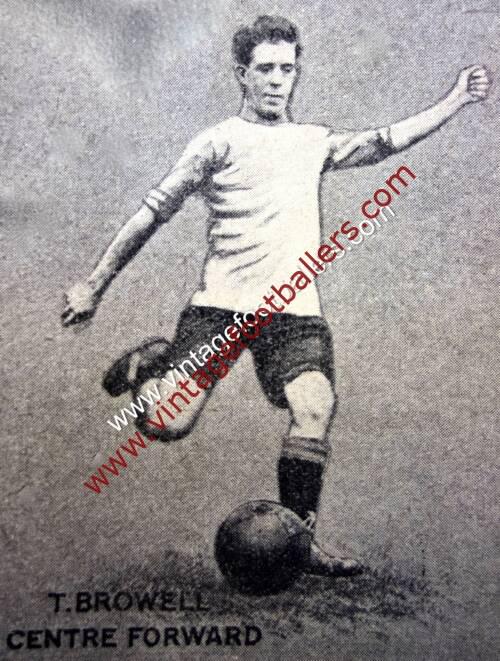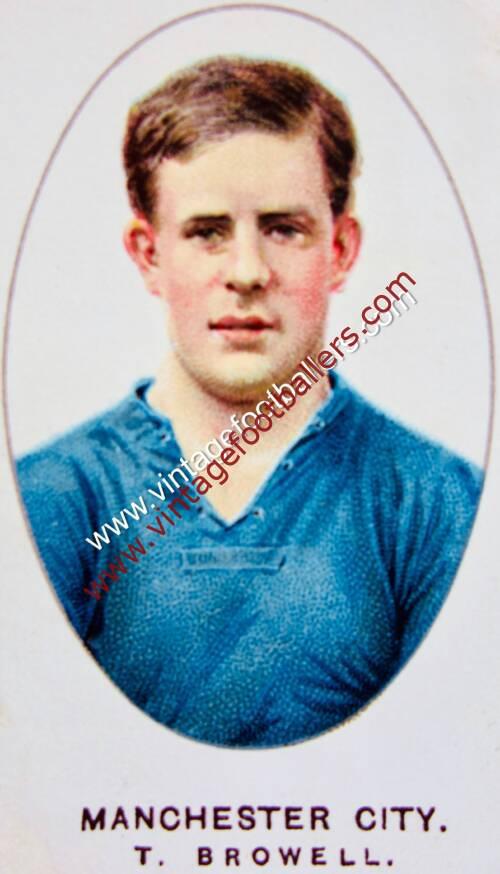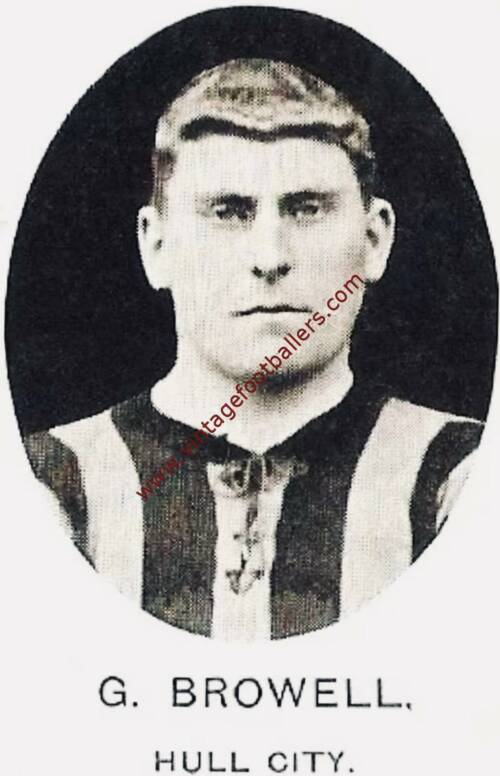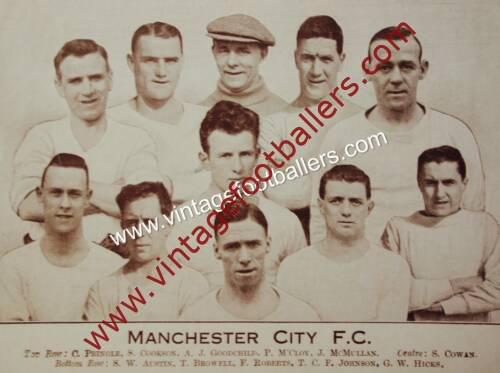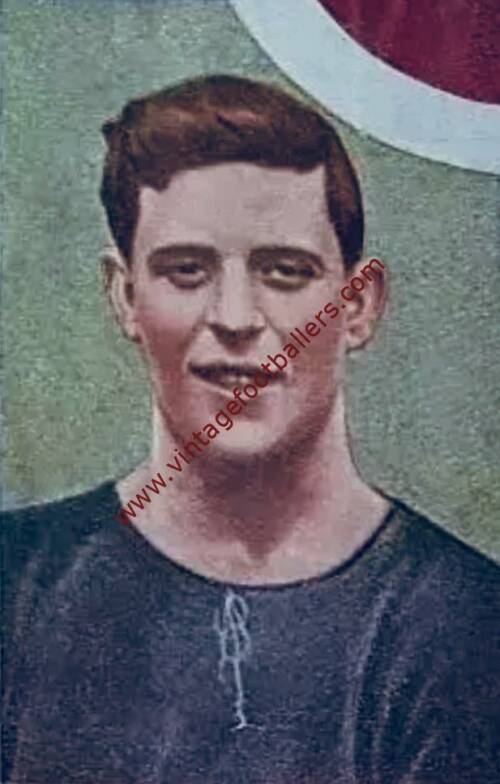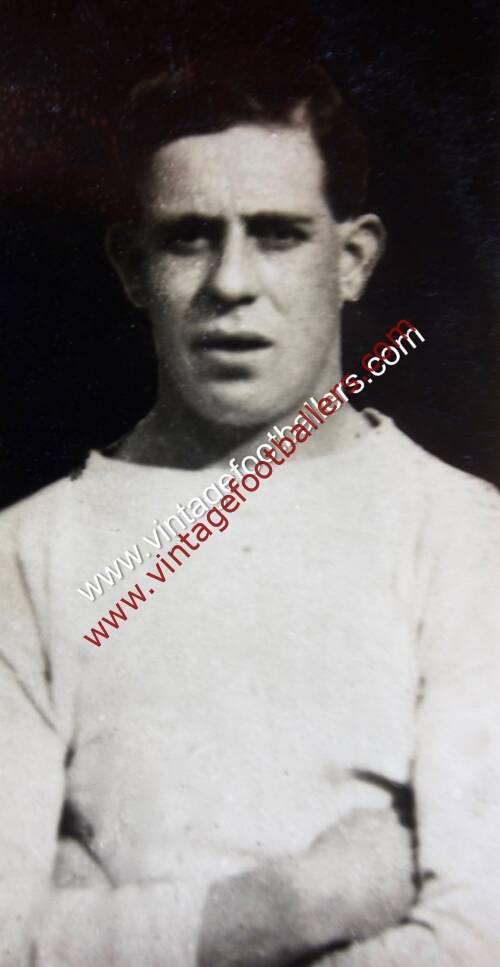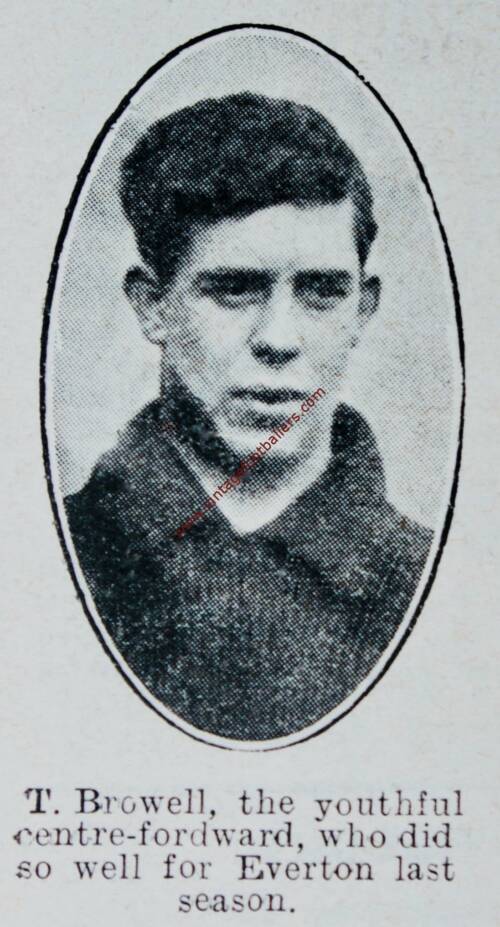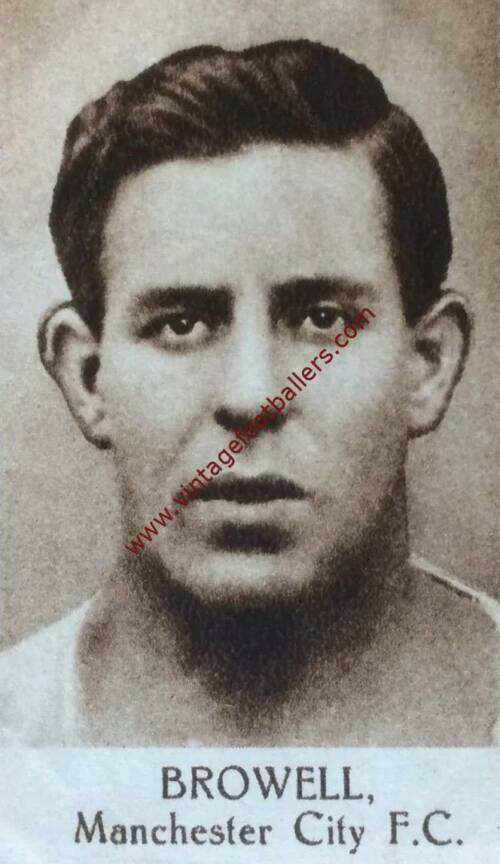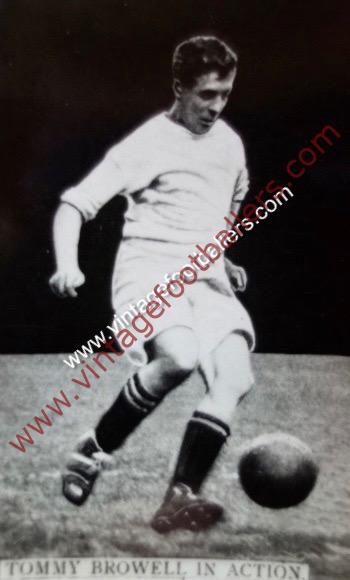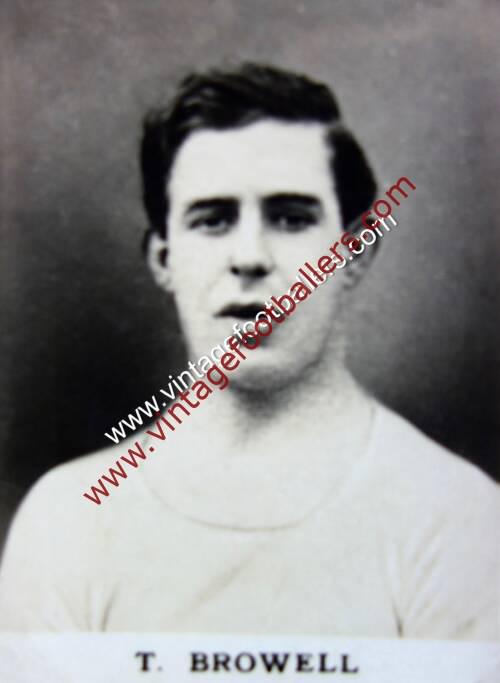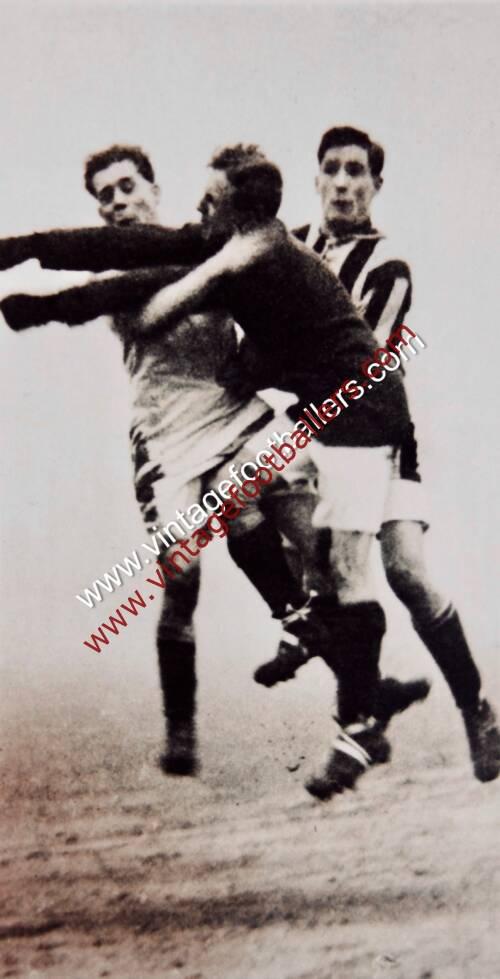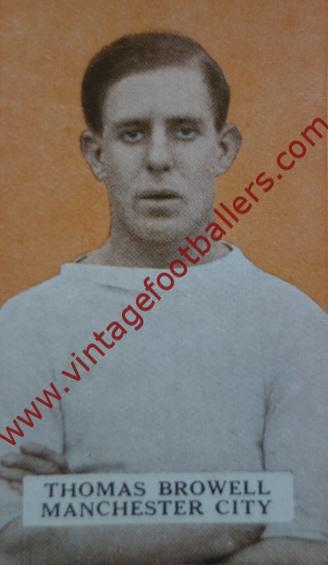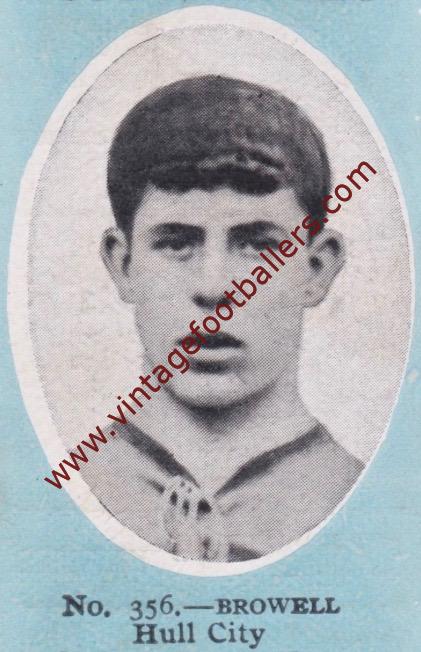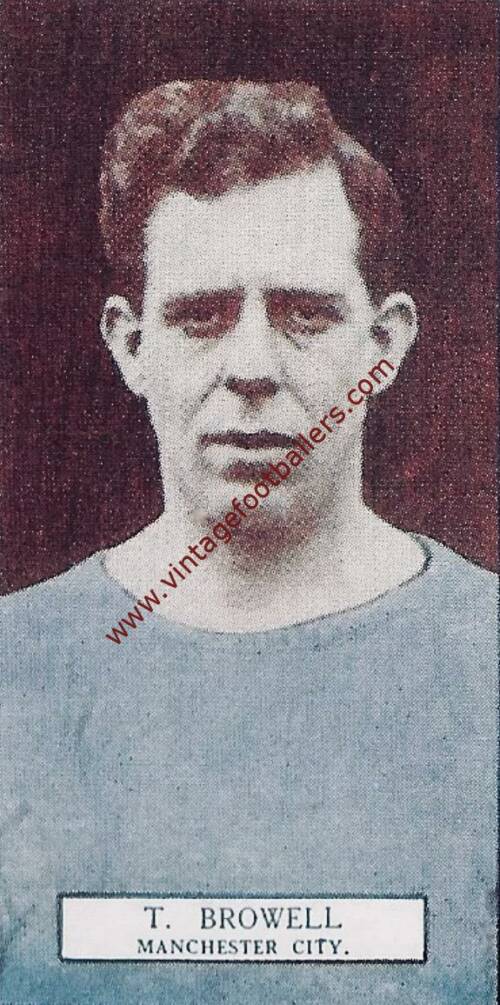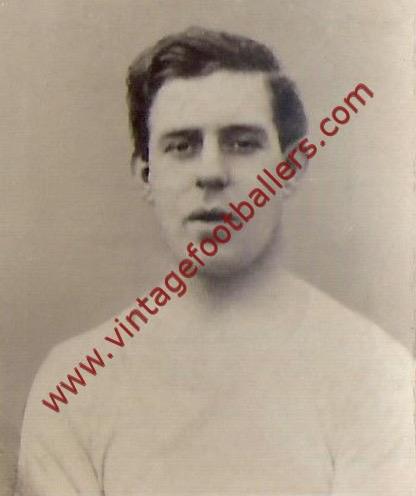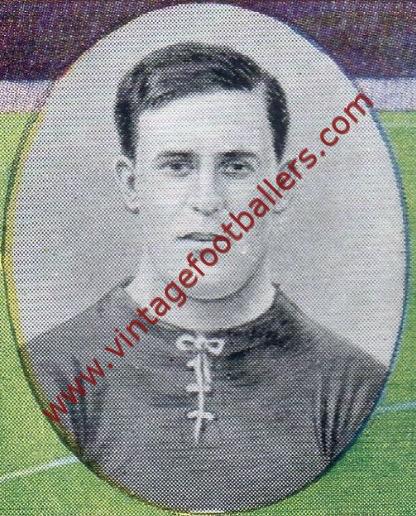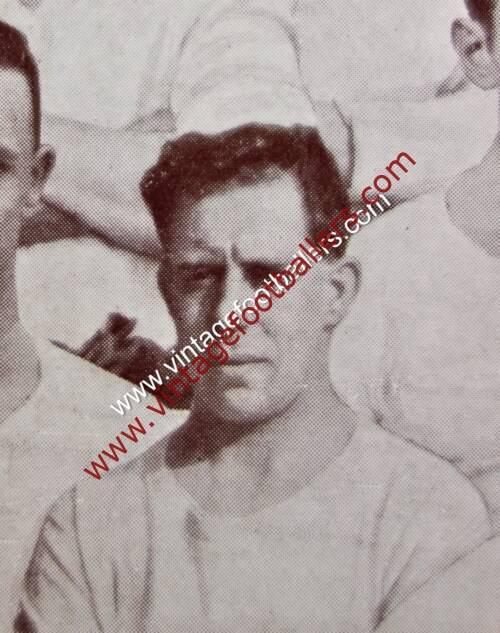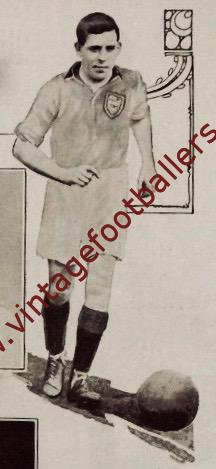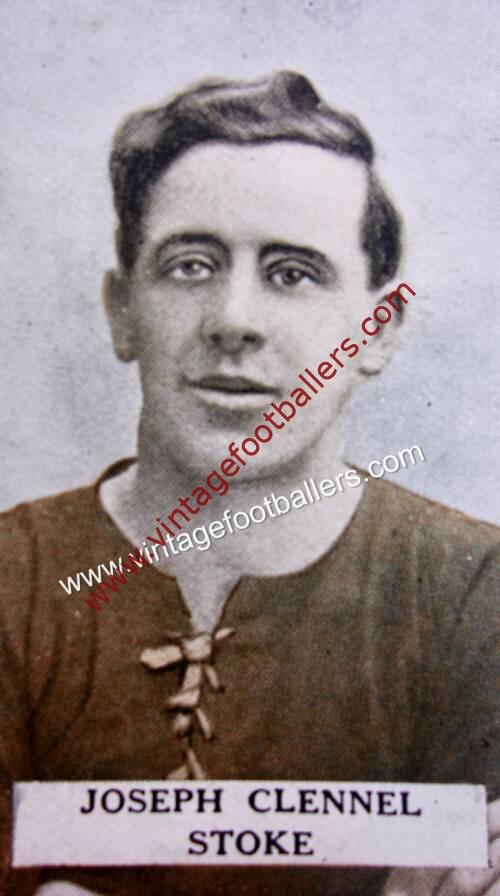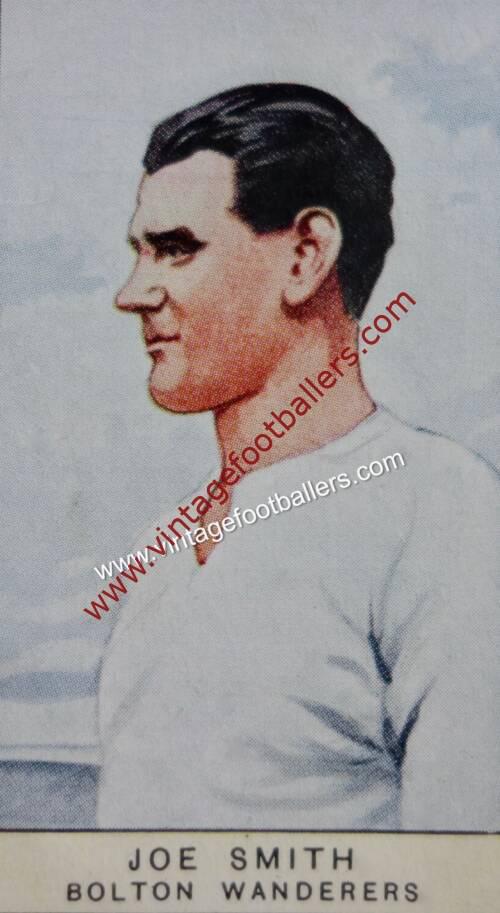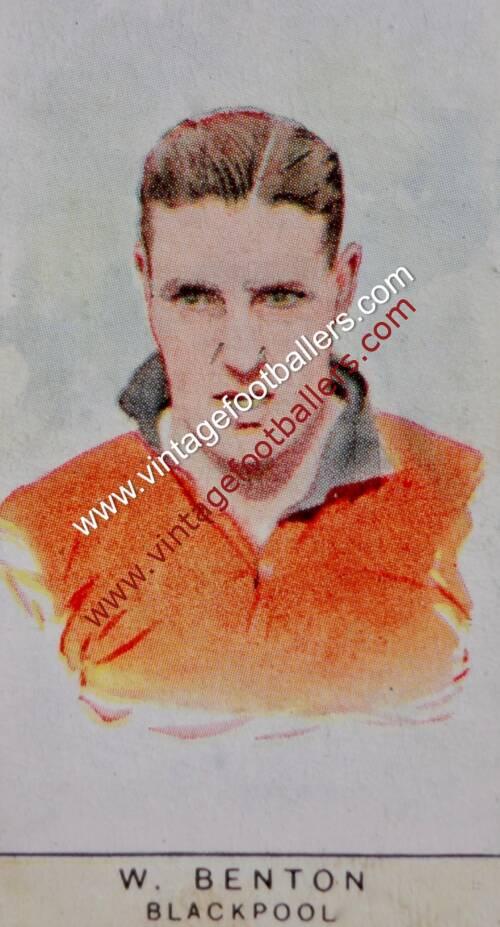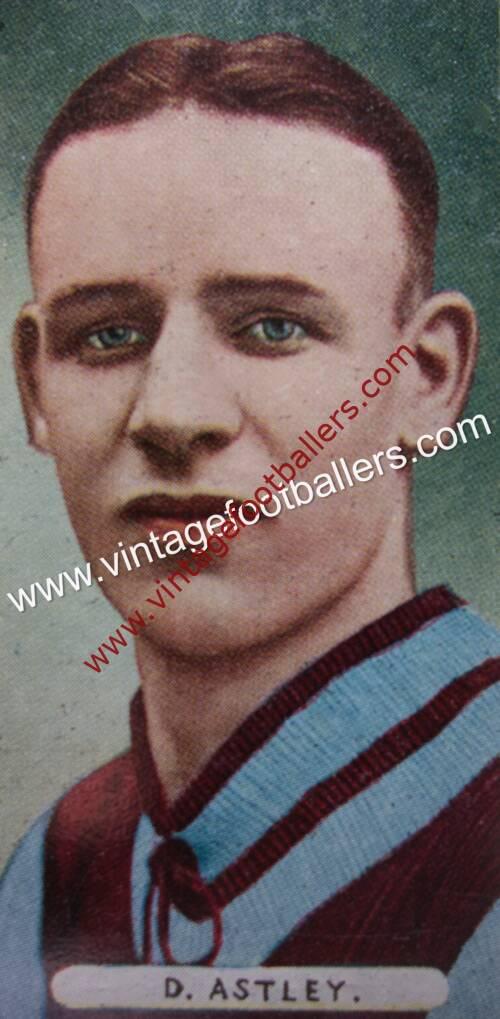Please choose your photo size from the drop down menu below.
If you wish your photo to be framed please select Yes.
Note: 16″x 20″not available in a frame.
Images can also be added to accessories. To order please follow these links
£8.95 – £49.95
Please choose your photo size from the drop down menu below.
If you wish your photo to be framed please select Yes.
Note: 16″x 20″not available in a frame.
Images can also be added to accessories. To order please follow these links
Walbottle, Newcastle upon Tyne born centre forward Tommy “Boy” Browell was a prolific goalscorer, scoring more than 200 career goals, and was the youngest and most famous of three footballing brothers, George and Andy also both played for Hull City and then George for Grimsby Town, Andy for Everton. Starting with Tyneside League Newburn Grange in 1909 he moved to Second Division Hull City for £2 in 1910, where he made his Football League debut at Bolton Wanderers in September 1910 and quickly acquired both the goal touch and the nickname – he scored 32 times in 52 matches for The Tigers including all 4 goals against Leicester Fosse in November 1911 and three other hat-tricks before transferring to Everton in December 1911 for £1,650.
He scored 4 goals in an FA Cup replay win over Bury in February 1912 and finished as Everton’s top scorer that season with 19 goals in 22 matches despite missing most of the first half of the season. He scored 37 goals in 60 games at Goodison Park before signing for Manchester City in October 1913 for £1,780, scoring on his City debut in a 2-1 home defeat to Sheffield Wednesday, finishing the season as City’s top goalscorer, but his career was then interrupted by the onset of the First World War which forced the suspension of peacetime football.
He guested for Motherwell in 1916 during the War and back at City after the conflict he formed a feared partnership with Horace Barnes (he joint top scored with Barnes in 1919-20 with 22 League goals each) as City finished runners up in the League Championship 1921. Browell was an ever present and City’s leading goalscorer scoring 31 goals including hat-tricks against Liverpool and Preston North End, and he again top scored in 1921-22 with 26 goals. He was an FA Cup semi finalist in 1924 when City lost 2-0 to eventual winners Newcastle United at St Andrews, Birmingham. In the 1925-26 season, Manchester City enjoyed a run to the 1926 FA Cup Final in which Browell was an influential figure, scoring seven times, including a hat-trick in the 11-4 defeat of Crystal Palace, and two goals in the first half hour of the semi final against Manchester United. However, victory eluded the team in the Wembley Final, which was won 1-0 by Bolton Wanderers. To compound the misfortune, City were also relegated to the Second Division on the final day of the season, losing to Newcastle United despite a Browell goal, when once again he finished as the club’s leading goalscorer with 28 in the campaign.
He scored 139 goals for City in 247 games before moving to Blackpool in September 1926 for £1,100. Browell scored 14 goals in his first season to become the club’s second highest scorer. Those goals included a hat-trick in a 5-0 home win over Notts County on 7th May 1927, in the final game of the season. He had four seasons at Bloomfield Road and played his last game in February 1930, scoring 29 goals from 70 appearances for The Seasiders. He remained in the Fylde Coast area, joining Lytham as player-coach in the summer of 1930 until 1933. He also went on to coach Morecambe from 1933 to 1934.
At the start of his career Browell twice played matches for Hull City in September 1910 that (highly unusually) featured all three brothers – on his debut on 10th September in a 2-1 defeat at Bolton Wanderers and a week later in a 1-0 win at Fulham.
NB taken in what appears to be a training match, Browell (white shirt) jumps above Manchester City team mates Sam Cookson and Fred Fayers (right).
| Weight | N/A |
|---|
